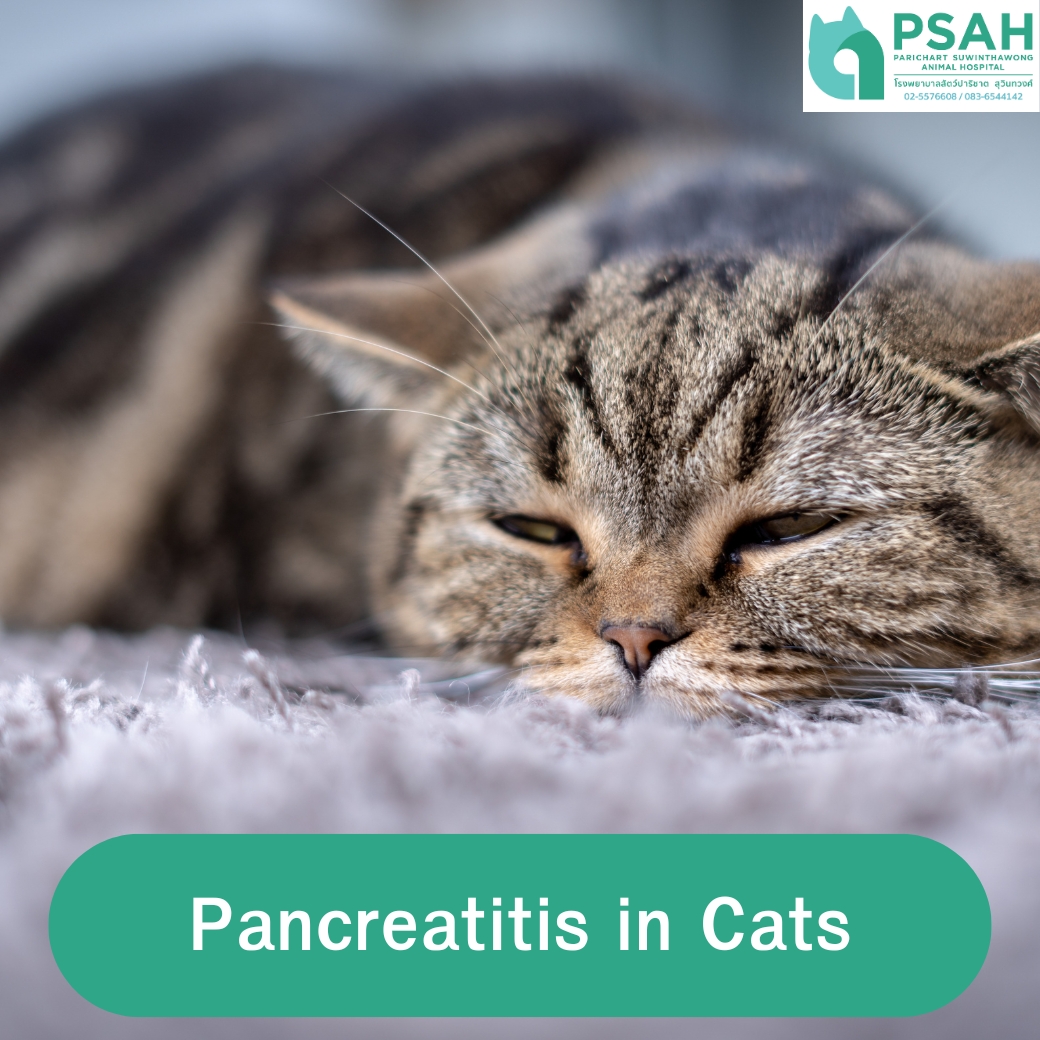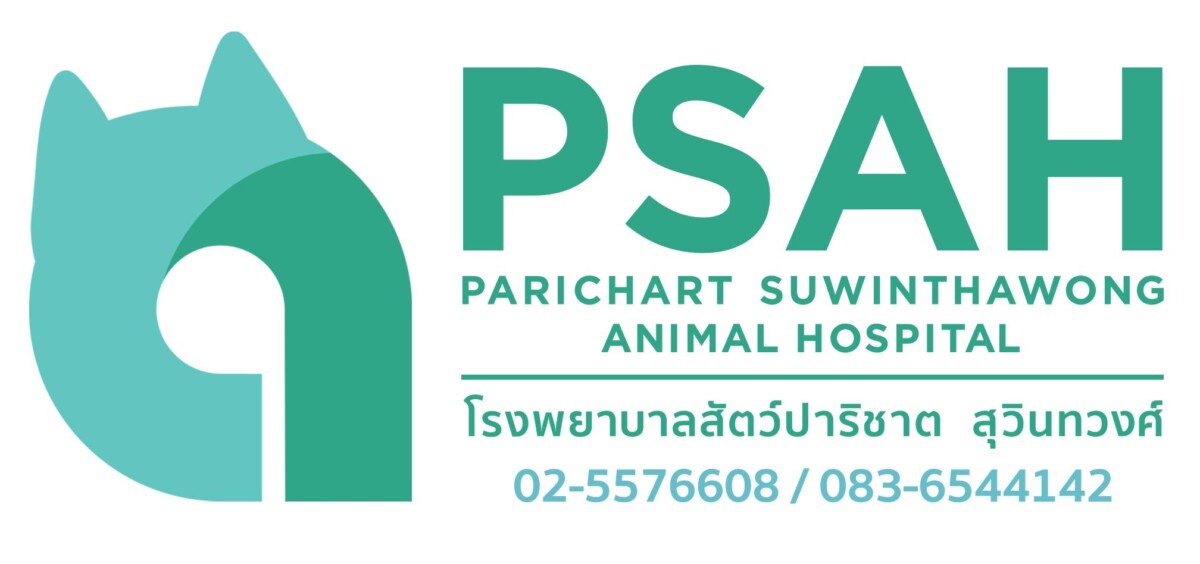Introduction
Pancreatitis in cats is a complex and often undiagnosed disease that can occur in cats of all ages. Prompt recognition of symptoms and treatment is crucial for recovery. Parichart Suwinthawong Animal Hospital offers comprehensive care for cats afflicted with this condition.
Prevalence of Pancreatitis in Cats
A study at the University of California Davis, involving necropsy of 115 cats, found a 66.1% histopathological prevalence of pancreatitis. Specifically, 50.4% of these cats had chronic pancreatitis alone, 6.1% had acute pancreatitis alone, and 9.6% showed signs of both acute and chronic pancreatitis. Interestingly, 45% of outwardly healthy cats also showed signs of pancreatitis, indicating that pancreatitis in cats is often undiagnosed or overlooked by both pet owners and veterinarians, as cats may not display obvious symptoms externally.
Symptoms
Cats with pancreatitis may exhibit various symptoms including:
– Lethargy: 51-100%
– Loss of appetite: 62-97%
– Vomiting: 35-52%
– Diarrhea: 11-38%
– Weight loss: 30-47%
– Dehydration: 37-92%
– Hypothermia: 39-68%
– Jaundice (Icterus): 6-37%
Diagnosis
In addition to comprehensive blood tests, biochemical profiles, blood acid-base and electrolyte levels, veterinarians will check for feline pancreatic lipase immunoreactivity (fPLI), perform ultrasounds, and occasionally additional abdominal imaging to assess the pancreas and surrounding organs.
Treatment
– For continuous vomiting, severe dehydration, and extreme lethargy, hospitalization in an animal emergency department is necessary.
– Immediate and sufficient fluid therapy to maintain pancreatic blood flow.
– Continuous intravenous pain relief with fentanyl or other painkillers.
– Anti-vomiting medication like maropitant combined with gastrointestinal acid reducers.
– Including symptom-specific medications.
– Antibiotics if there is an indication of infection.
– Fasting for about 2 days and gradually introducing a low-fat, easily digestible diet as symptoms improve. If a cat does not eat on its own within 48 hours, a feeding tube may be considered.
Prognosis
– The mortality rate for cats with acute pancreatitis ranges from 9% to 41%.
– Low plasma ionized calcium (hypocalcemia) is associated with poor outcomes.
– Low blood sugar (hypoglycemia) and increased BUN and CRE levels (azotemia) are indicators of a poor prognosis.
Prevention
Prevention focuses on managing appropriate diet and weight. Regular health checks help detect early signs of pancreatitis and other health issues.
Conclusion
Pancreatitis in cats is a potentially life-threatening health issue that is often undiagnosed. Parichart Suwinthawong Animal Hospital is equipped with modern diagnostic tools and is a Gold Level Cat Friendly Clinic. Our veterinary and nursing team is ready to provide the best care to ensure the fastest recovery for your cat. Contact us if you notice any symptoms of disease in your cat.


